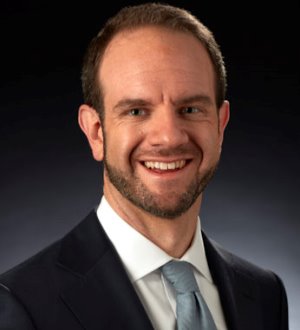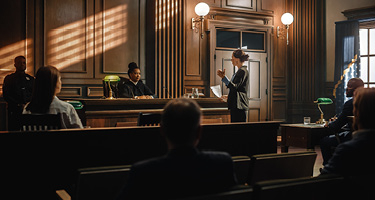On January 5, 2023, the Federal Trade Commission (FTC) announced a new proposed “Noncompete Clause Rule” (the “Rule”) that, if adopted in its current form, would result in a near-total ban on non-competition clauses in employment agreements. According to the FTC, noncompete clauses are “an unfair method of competition” and thus violate Section 5 of the Federal Trade Commission Act. The proposed Rule is a result of the FTC’s (and the Biden Administration’s) view that noncompete clauses hamper competition in the labor market and suppress wages, innovation and entrepreneurship.
According to the FTC, approximately one in five American workers are bound by a noncompete clause. Thus, any change to existing law will have a significant impact on the rights of employers and workers. Though most states (including Kentucky and Indiana) already regulate noncompete clauses to varying degrees, the proposed Rule would preempt all contrary state laws.
The Rule would not simply bar the enforcement of noncompete clauses in court. Employers would be barred from enforcing existing noncompete clauses as well as requiring them as a condition of future employment. Specifically, the proposed Rule declares it to be a prohibited “unfair method of competition” for an employer to (1) enter into or attempt to enter into a noncompete clause with a worker; (2) maintain with a worker a noncompete clause; or (3) represent to a worker that the worker is subject to a noncompete clause where the employer has no good faith basis to believe the worker is subject to an enforceable noncompete clause.
Without minimizing the significance of the FTC’s announcement, many commentators believe that the proposed Rule will change in the public comment process, will almost certainly be challenged in court for some time before going into effect and may never become law. Keep reading to learn what you need to know about the proposed new rule.
How Will This Rule Affect Employers and Workers?
Every employer that has noncompete agreements with any worker would be affected by this new rule. The Rule broadly defines “noncompete clauses” and would further prohibit contractual terms that are “de facto noncompete clauses.” If adopted as currently drafted, the Rule would require employers to rescind both explicit noncompete clauses and any other contractual terms that “ha[ve] the effect of prohibiting the worker from seeking or accepting employment with a person or operating a business after the conclusion of the worker’s [current] employment.” As is, this sweeping (and vague) language may affect customer non-solicitation agreements, broadly drafted non-disclosure agreements and other similarly restrictive covenants in addition to explicit noncompete clauses. Critically, the Rule defines “worker” very broadly, including employees, independent contractors, interns, externs, volunteers, apprentices and sole proprietors.
Narrow Sale of Business Exception
Importantly, restrictive covenants reached as part of the sale of a business were spared by the FTC. The Rule contains a single, narrow exception that applies only when the person who is restricted by the noncompete (1) is either selling a business entity or otherwise disposing of all of the person’s ownership interest in the business entity or is selling all or substantially all of a business entity’s operating assets; and (2) is an owner, member or partner holding at least a 25% ownership interest in the entity at the time the person enters into the noncompete clause. This lenient approach is similar to that taken by the courts of most states, which have viewed the interests of business purchasers positively and deserving of reasonable protection.
When, if Ever, Will the Rule Take Effect?
If implemented as proposed, the Rule would bar employers from entering into or enforcing noncompetes with workers and require employers to rescind any existing noncompetes within six months (180 days) after the date the final version of the Rule is published. The Rule requires the employer to provide notice of the rescission to current and former workers within 45 days after the date of rescission. (Regarding former workers, an employer must send notices only to those individuals whose contact information the employer has readily available.)
If implemented as proposed, the Rule would bar employers from entering into or enforcing noncompetes with workers and require employers to rescind any existing noncompetes within six months (180 days) after the date the final version of the Rule is published."
A more important question, however, is whether implementation of the Rule would be enjoined and delayed by a federal court at the outset of what would likely be hotly contested and protracted litigation initiated by business groups. Many commentators believe the FTC, an independent federal agency, has exceeded both the constitutional and statutory scope of its authority. Accordingly, much like the recent OSHA COVID-19 vaccine requirement, the Rule could amount to a much-publicized overreach with political, but not necessarily legal, consequences.
What Can Employers Do Now?
Employers that wish to protect confidential information, trade secrets, employees, customers and other key business relationships should revisit and review any existing non-competition, non-solicitation and non-disclosure agreements they are using (or have used in the recent past) to determine whether the Rule would bar their use. Even if noncompetes end up banned, employers can still include strict confidentiality and other protective clauses in employment agreements that protect legitimate business interests. Employers may also wish to conduct an internal census accounting for the current and former employees who are presently subject to a restrictive covenant agreement. Employers that wish to comment on the FTC’s Rule directly may do so here: Regulations.gov. Finally, employers should stay abreast of the Rule’s development in the media and involve counsel whenever these types of unfair competition matters arise.
Kirby A. Black is an associate with Stoll Keenon Ogden. A native of Paducah, Kentucky, she joined the firm in 2022 and practices with the health care; torts, trials and insurance; and business litigation groups. She focuses on defense of professional negligence claims made against physicians, health care personnel and hospitals.
Jeffrey A. Calabrese is the practice leader for Stoll Keenon Ogden’s Labor, Employment & Employee Benefits group. Jeff has substantial experience litigating in state and federal courts and before administrative agencies, and regularly provides clients with advice on difficult workplace issues and legal compliance matters. Jeff also works closely with educational institutions and has been certified as a Title IX Coordinator by the Association of Title IX Administrators (ATIXA).
































